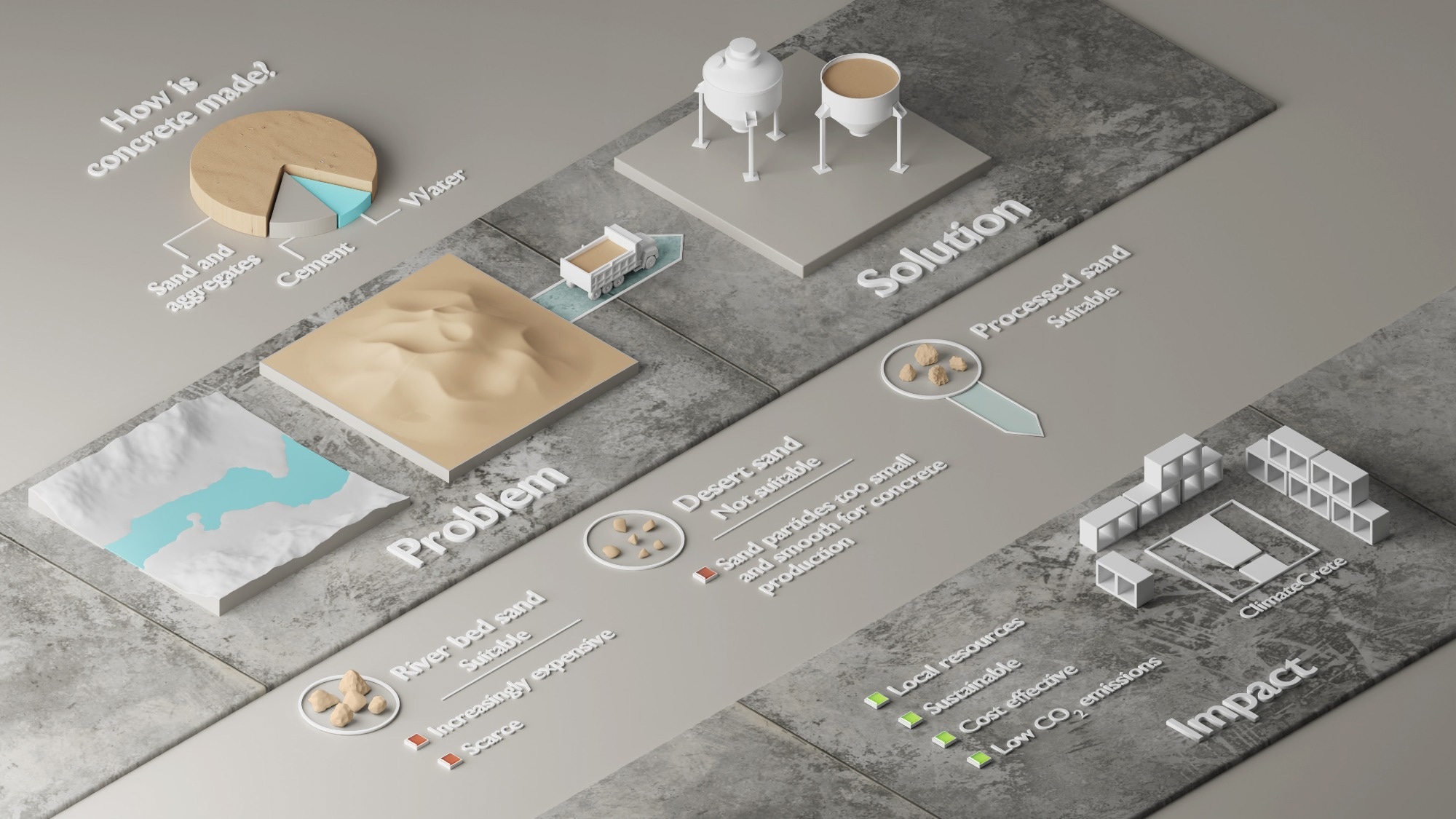Concrete production relies heavily on sand; however, most of the sand in the Earth is unsuitable for concrete manufacturing due to its fine particle size and smooth surface. Consequently, riverbeds and other suitable construction sands are overmined, causing landscape degradation, and transported for thousands of kilometers, increasing the carbon cost associated with transportation and causing a worldwide shortage.

Image Credit: KAUST
Patented technology developed in the lab of KAUST Professor of Chemical Engineering Jorge Gascon uses local sand for manufacturing. It converts the fine sand of the Arabian Peninsula into rougher particles suitable for use in concrete manufacturing. Significantly, this conversion lowers the need for cement and reduces CO2 emissions by up to 60 percent through both the reduction of cement and transport.
"Only 5 percent of the world's sand can be used for concrete. At ClimateCrete™, we have developed technology that modifies the surface of the sand particles, making a much more durable and stable concrete" explained Professor Gascon, one of the four co-founders of ClimateCrete. He went on to say, "This modification process improves the quality of the concrete (leading to higher compressive strength) and reduces the need for CO2 emitting cement. Transportation costs and associated CO2 emissions are also eliminated.”
Strength and durability tests performed by independent labs in Germany and KSA show a significant increase in strength compared to untreated sand and long term durability.
The opportunity for ClimateCrete™ is vast within the global construction aggregates market, worth USD 400 billion and within the Saudi Arabian real estate and infrastructure projects landscape, with planned investment of over $1.1 trillion.
Another co-founder of ClimateCrete™, KAUST Distinguished Researcher Professor William McDonough, recently named one of TIME's 100 most innovative leaders driving business climate action, further commented, "The adoption of this technology presents an immense opportunity for Saudi Arabia. With an executable first pilot program to prove its technology and solution, ClimateCrete™ is positioned to establish a path for unprecedented growth within the construction manufacturing industry in Saudi Arabia and the region. ClimateCrete™ technology also enables a 100 percent domestic supply, assisting Saudi Arabia to reach its ambitious targets to become carbon-neutral by 2060."
Vice President of Innovation at KAUST, Dr Ian Campbell OBE, said, “ClimateCrete™ is just one of the examples of how KAUST is advancing and enabling Saudi Arabia’s developing deep-tech startup ecosystem. With over 300 startups supported in its 14-year history, KAUST is committed to translating research and developing founders who have the potential to provide present and future solutions to critical issues of sustainability and health, advancing the Kingdom and the world."
“ClimateCrete’s technology transforms abundant but mostly unusable fine sand into a precious new commodity for the construction industry worldwide,” said Patrick Suel, Capital K’s managing director who led the investment in ClimateCrete™. "The resulting concrete is stronger while reducing global CO2 emissions. Considering that the world is fast running out of construction sand, ClimateCrete™ is poised to change the economics and environmental impact of concrete applications radically.”